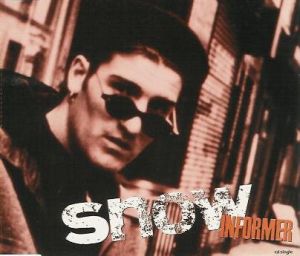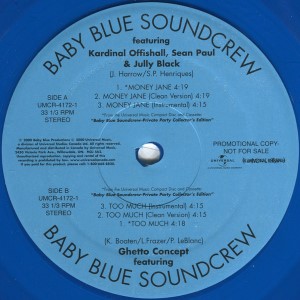Related Research Articles

The Music of Puerto Rico has evolved as a heterogeneous and dynamic product of diverse cultural resources. The most conspicuous musical sources of Puerto Rico have primarily included African, Taino Indigenous, and European influences. Puerto Rican music culture today comprises a wide and rich variety of genres, ranging from essentially native genres such as bomba, jíbaro, seis, danza, and plena to more recent hybrid genres such as salsa, Latin trap and reggaeton. Broadly conceived, the realm of "Puerto Rican music" should naturally comprise the music culture of the millions of people of Puerto Rican descent who have lived in the United States, especially in New York City. Their music, from salsa to the boleros of Rafael Hernández, cannot be separated from the music culture of Puerto Rico itself.
Eurodance is a genre of electronic dance music that originated in the late 1980s in Europe. It combines many elements of rap, techno and Eurodisco. This genre of music is heavily influenced by the use of rich vocals, sometimes with rapped verses. This, combined with cutting-edge synthesizers, strong bass rhythm and melodic hooks, establishes the core foundation of Eurodance music.
Michelle Ann Camille McCullock, better known by her stage name Michie Mee, is a Canadian rapper and actress. Canada's first notable female MC, she is considered a national hip-hop pioneer.

Inner Circle, also known as The Inner Circle Band or The Bad Boys of Reggae, are a Jamaican reggae band formed in Kingston in 1968. The band first backed The Chosen Few in the early 1970s before joining with successful solo artist Jacob Miller and releasing a string of records. This era of the band ended with Miller's death in a car crash in 1980.
Oswald Priest, better known as Mad Lion, is a dancehall, ragga musician and rapper. He frequently collaborates with fellow hip hop artist KRS-One. His awards include the 1994 Source Award as Reggae Artist of the Year, and the 1995 Source Award as Reggae Hip-Hop Artist of the Year.

Hip hop or hip-hop is a culture and art movement that was created by African Americans, starting in the Bronx, New York City. Pioneered from Black American street culture, that had been around for years prior to its more mainstream discovery, it later reached other groups such as Latino Americans and Caribbean Americans. Hip-hop culture has historically been shaped and dominated by African American men, though female hip hop artists have contributed to the art form and culture as well. Hip hop culture is characterized by the key elements of rapping, DJing and turntablism, and breakdancing; other elements include graffiti, beatboxing, street entrepreneurship, hip hop language, and hip hop fashion. From hip hop culture emerged a new genre of popular music, hip hop music.
Victoires de la Musique are an annual French award ceremony where the Victoire accolade is delivered by the French Ministry of Culture to recognize outstanding achievement in the music industry. The classical and jazz versions are the Victoires de la musique classique and Victoires du Jazz.
The Chakachas were a Belgium-based group of Latin soul studio musicians. Also known as Les Chakachas, Los Chakachas, or Los Chicles, they were formed by bandleader Gaston Bogaerts, percussion ; Kari Kento, vocals and maracas; Vic Ingeveldt, saxophone; Charlie Lots, trumpet; Christian Marc, piano; Henri Breyre, guitar and backing vocals; and Bill Raymond, bass guitar. All were native to Schaerbeek, or nearby Charleroi, Willebroek and Liège.

Leroy Sibbles is a Jamaican reggae musician and producer. He was the lead singer for The Heptones in the 1960s and 1970s.
Brazilian hip hop is a national music genre in Brazil. From its earliest days in the African-Brazilian communities of São Paulo and Rio de Janeiro, the genre has grown into a countrywide phenomena. Rappers, DJs, break dancers and graffiti artists are active across the complete spectrum of society blending Brazil's cultural heritage with American hip hop to form a contemporary musical fusion.

"Informer" is a song by Canadian reggae musician Snow, released in August 1992 by East West Records as the first single from his debut album, 12 Inches of Snow (1993). The song is well known for the line "a licky boom boom down" and for Snow's fast toasting and often unintelligible lyrics.

Nicholas Caruana, also known as Nicky Bomba, is an Australian musician and singer-songwriter. He is the leader of the ARIA Award-winning Melbourne Ska Orchestra, frontman of his band, Bomba, as well as the former drummer and percussionist of John Butler Trio. He has performed in other acts and as a solo artist. His youngest sister, Danielle Caruana,, is married to his former bandmate, John Butler. His older brother, Michael Caruana, is a member of Bomba and of Mama Kin's backing band.
White Lion Records is a reggaeton, Latin Music, Latín reggae and urbano record label established by Elías de León with the release of the album No Mercy by Daddy Yankee in 1995. The label would temporarily change its name to 'Boricua Guerrero' from 1996-2001 until reestablishing as White Lion Records with the releases of Maicol y Manuel's "Como En Los Tiempos De Antes" and the compilation "Planet Reggae" in 2002. As an independent label in 2003, it was selling over 100,000 copies of Tego Calderon's most recent album at the time; it soon after signed a distribution deal with Sony BMG.

Christy Campbell, known by the stage name Admiral T, is a French singer, rapper, songwriter, DJ, and actor. He is one of the most popular and successful Guadeloupean singers. He is also a designer and the creator of the clothing trademark WOK LINE.
Ophlin Russell, better known as Sister Nancy, is a Jamaican dancehall DJ and singer. She is known as the first female dancehall DJ and was described as being a "dominating female voice for over two decades" on the dancehall scene.

Bomba Estéreo is a Colombian band founded in Bogotá in 2005 by Simón Mejía. Their music has been described as "electro tropical" or "psychedelic cumbia".

"Money Jane" is a song recorded by Canadian DJ group Baby Blue Soundcrew featuring Canadian rapper Kardinal Offishall, Jamaican musician Sean Paul, and Canadian singer-songwriter Jully Black. It was released by Universal Music Canada in 2000, and was the first single from the group's debut studio compilation album Private Party Collectors Edition; a remix was included on Offishall's 2001 album Quest for Fire: Firestarter, Vol. 1. "Money Jane" is a Canadian hip hop and dancehall song with lyrics about a wealthy woman who provides financial and material support for her male companion. The song is noted for its influence on Toronto's hip hop music scene, and is credited with launching Paul's international music career.
Dancehall pop is a sub-genre of the Jamaican genre dancehall that originated in the early 2000s. Developing from the sounds of reggae, dancehall pop is characteristically different in its fusion with western pop music and digital music production. Dancehall pop is also different from dancehall in that most songs use lesser Jamaican Patois in lyrics––allowing it to be globally understood and consumed. It also incorporates the key pop music elements of having melodies, hooks, and the verse-chorus format. Additionally, the genre moves away from the reggae and roots reggae music origins in social and political protest, now lyrically centering on partying, dancing, and sexuality.

Tings an' Times is an album by the Jamaican dub poet Linton Kwesi Johnson, released in 1991. It was Johnson's first album in six years. Tings an' Times also served as the title of a book of Johnson's poetry.
References
- 1 2 3 4 5 6 Ho Sue, Michelle (11 November 1999). "Women ah running tings here" (PDF). Humber Et Cetera. p. 18.
- 1 2 Melnyk, Adam, Visual Orgasm: The Early Years of Canadian Graffiti (Calgary, Alberta: Frontenac House Media, 2011) p. 76
- 1 2 Liss, Sarah (7 March 2002). "Running tings: Women's reggae posse hang tough". NOW Toronto.
- ↑ "TolumiDE". Visual Collaborative. January 2019.